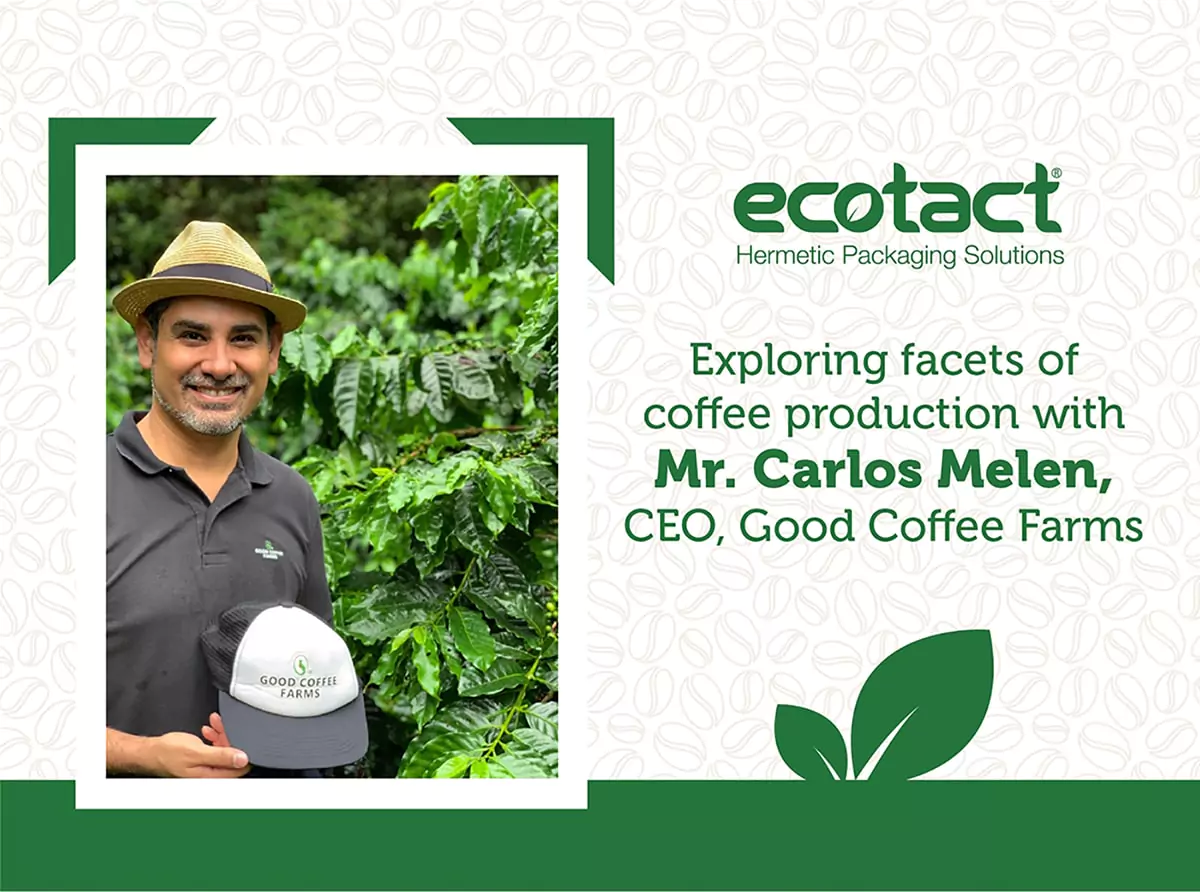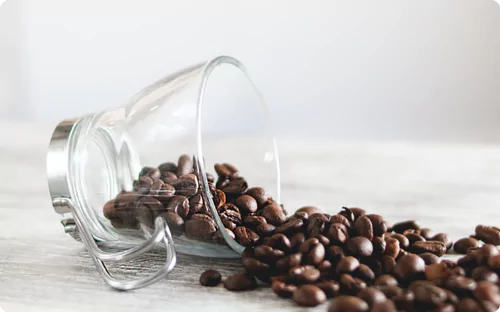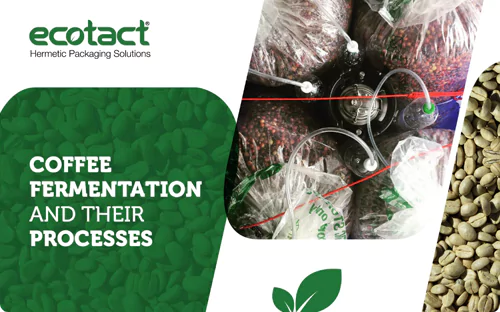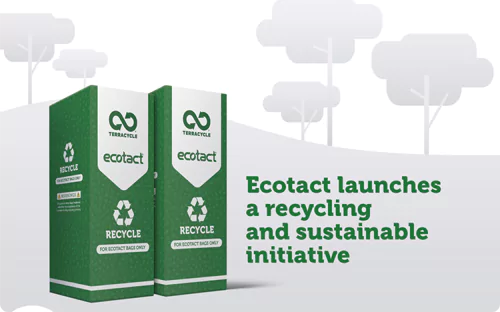In an exciting conversation with Arnaud Causse, CEO Las Tolas Estate Coffee, Ecuador we explore the production of specialty coffee and the popularity of it.
1) Tell us more about how you ventured into the specialty coffee industry.
During a long mission in El Salvador after the Peace Accords, I discovered that certain coffees could be valued in niche markets that were beginning to differentiate the coffees.
While I was looking to improve the quality and fame of the Galapagos coffee, I decided to find the ideal place to produce a highly differentiated coffee, based on my experiences around the world applying the principle of “layers” on a map. This is how project Las Tolas Estate was born in the Northwest of Pichincha. The reception as soon as we started production was very encouraging surfing on the 3rd wave at its beginning.
2) What inspired you to experiment with different coffee growing techniques? Please share a little about them. How do these processes distinguish your coffee?
The inspiration comes from the accumulation of experiences and exchanges with a multitude of producers passionate about Africa, Central America, the Caribbean and South America. To this is added the permanent observation of the behavior of the coffee plantations of Las Tolas and Terrazas del Pisque and the results of the tastings.
The agro-ecological management that we implement is giving surprising results both in productivity and in the generation of aroma precursors. With these techniques we can guarantee an optimal intrinsic quality of our coffee (s) that we sublimate and then atomize through various post-harvest processes to constitute a full range of potential expression.
3) How has Cider coffee gained recognition in recent years and how will it remain in the coming years, according to you?
Sidra coffee has gained much fame for its excellent behavior in the cup; however, its genetic “footprint” is not yet defined and therefore the variation is uncontrollable. I think that the only conclusion that would be sustainable is that the crossing between Bourbones and certain heirlooms originating from Ethiopian germplasm allows the development of very promising populations under certain particular conditions.
Sidra, eat Geisha, will have its glory years until a new family of cultivars appears with characteristics more adapted to market expectations or until consumers change their preferences.
4) Your work has continued to evolve to the wider coffee growing community. Can you share some inspiring stories about the same?
In the Northwest of Pichincha we were the pioneers in the cultivation of specialty coffees in a non-coffee producing area (The first crops of Las Tolas Estate are from 1999). Today there are more than 200 producers in this area who came betting on the cultivation. We have released the first material with which we began the experiments.
Today, we continue to investigate (“soft” techniques), observe (agroforestry concepts) and innovate (controlled fermentations) to share these experiences with the coffee community. Obviously I include in this community the whole of the chain even the baristas who do not rest to educate consumers and put tremendous pressure on us (producers) not to stop proposing new trends. Thus, the world of specialty coffees was tremendously energized to such an extent that, today, it is totally disconnected from “bulk” and handling “commodities”.
5) What are the best practices for producing quality coffee?
The best practice is undoubtedly OBSERVATION. Most growers know the cultivation manuals by heart; However, they do not apply the set of the recommended technical itinerary because they must compose with a series of own limitations inherent to the conditions of their plantations and their economies. For this reason, the most efficient are those that best knew how to adapt to both the environment and the market.
6) How do you preserve your coffee products? How important are good hermetic packaging solutions to your business? Are there specific brands you prefer?
Our coffees are preserved on the farm both in parchment and in dry cherry in Ecotact covers to allow better homogenization (equivalent to a rest in large hoppers) and avoid contamination (fungi, mold, insects) and humidity variations. In natural coffees, the possibility of storing several months without sudden changes in conditions allows a tremendous bonus type aging. Today, I do not believe that some specialty coffee buyer does not demand that it be exported in airtight cases. Vacuum packaging, abandoned for a time, seems to be convincing again and could be an opportunity to lower the unit content even further (from 69 Kg we go to 60 Kg, then 50 Kg and 25 Kg in textile bags) below 20 Kg ( 5-10-15 Kg vacuum packs can match the batches of the small roasters’ equipment, encouraging them to buy more expensive coffees in smaller quantities.
7) Have you noticed a change in the pattern of coffee consumption / demand during the pandemic?
Interestingly, our customers told us that the most expensive coffees sold very well. In consumer countries, this effect is due to several factors, mainly evident during confinement:
– Consumers had more time to research and learn about specialty coffees; So the choice of coffee went through a more in-depth selection process than usual;
– Consumers asked more for their coffees online and were able to access a much wider offer than in a supermarket, discovering the very advanced traceability options;
– Consumers saved money by not consuming outside the home and did not hesitate to pay more for their coffees and give more importance to quality;
8) What are some of the challenges you have faced as a specialty coffee producer due to the pandemic?
In the midst of what must have been a true tragedy for many people, we can consider ourselves privileged in our activity and business; we don’t stop producing, we don’t stop selling.
Things got quite complicated in the administrative procedures and funding sources dried up, making economic management very difficult. At this time, the support of our allies further down the chain was crucial.
9) How do you think airtight packaging is helping the coffee industry in these difficult times?
I do not believe that it has a significant technical influence on health safety due to storage times and extreme precautions taken on the farms but, without a doubt, it should reassure people who must handle the product at destination.
On the other hand, as the deadlines for all procedures have been extended, being able to preserve the coffee in better conditions is essential and producers should seriously think about using hermetic containers in farm conservation and not only as a market requirement for exports.
 French
French
 English
English Spanish
Spanish


